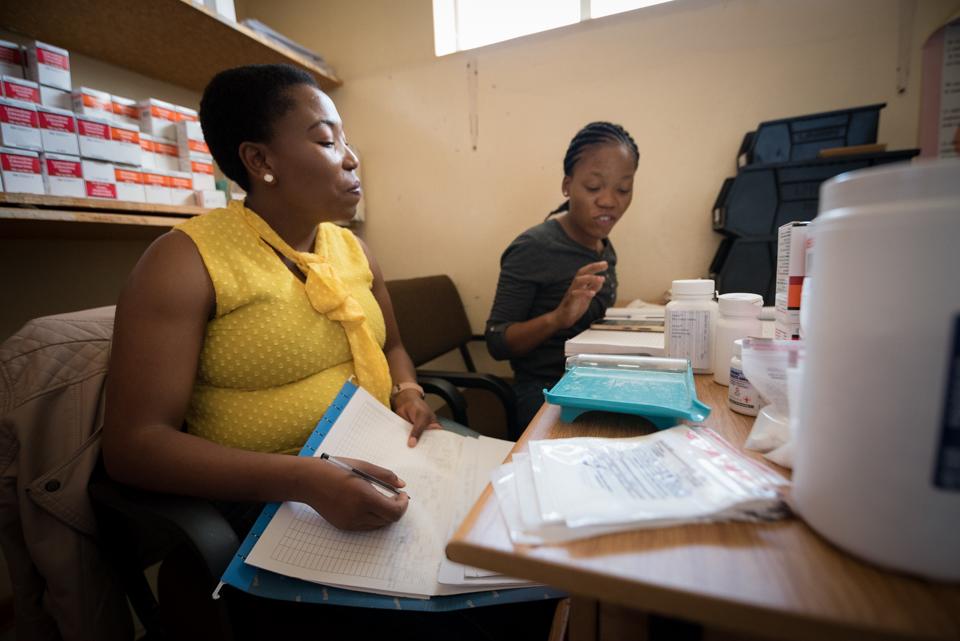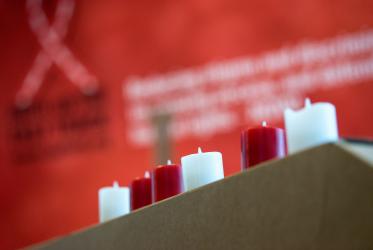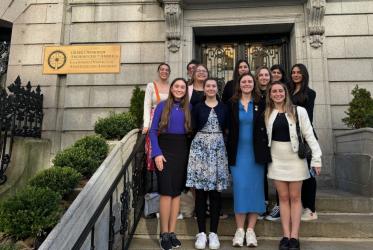The World Council of Churches - Ecumenical Advocacy Alliance (WCC-EAA) endorses a newly expanded collaboration on HIV between the Medicine Patent Pool (MPP) and Gilead. On 4 October, the MPP announced a licence with Gilead Sciences for bictegravir (BIC), a new integrase inhibitor part of a once-daily, single-tablet HIV regimen currently filed for regulatory approval at the United States Food and Drug Administration and the European Union.
The agreement will allow access to generic formulations containing BIC, TAF, TDF, cobicistat and elvitegravir to be manufactured in India, China and South Africa for use in 116 countries. The agreement includes four more countries, Belarus, Malaysia, Philippines and Ukraine, compared to previous Gilead licences.
“Currently, there are over 37 million people living with HIV and approximately only half of them have access to first line antiretroviral (ARV) treatment,” explains David Deakin from the WCC-EAA Access to Treatment Working Group. “There is still a long way to go with a target set to 33 million being on treatment by 2030, so we welcome this new licence for bictegravir.”
“While applauding this expanded agreement, to also include more countries, we remain concerned about the overpricing of other drugs produced by Gilead,” adds Stuart Kean from the WCC-EAA.
“Although Gilead was the first company to license its HIV medicines to the MPP, so far it has only issued hand-picked voluntary licenses for its high-priced Hepatitis C medicines”, says Astrid Berner-Rodoreda, HIV policy advisor for the German Protestant development agency Bread for the World. “Now that the MPP has a mandate for Hepatitis and TB as well, we call on Gilead to license its Hepatitis C medicines to the MPP alongside its HIV medicines.”
“In addition to the huge gap in access in low and middle income countries for sofosbuvir,” Berner-Rodoreda continues, “we are also concerned about rationing in high income countries, due to its unacceptably high price. Gilead has long recouped costs for its investment in sofosbuvir and made enormous profits on this medicine. Good healthcare is a right for all. We call on Gilead to follow suit with its Hepatitis C medicines and ask that access to HCV medicines becomes affordable worldwide.”
Bictegravir (BIC)
- Bictegravir (BIC) is an integrase inhibitor that is being investigated as part of a single tablet regimen of BIC/TAF/FTC with a dose of 50 mg once daily in adults for first-line treatment
- BIC is in the same class as dolutegravir (DTG), elvitegravir (EVG), and raltegravir (RAL)
- When combined with TAF/FTC in phase III, BIC was safe and well tolerated and showed high virologic response rates comparable with those of dolutegravir in naïve patients, showing no treatment-emergent resistance through week 48.
- BIC/TAF/FTC is being studied in adolescents and children
- Gilead submitted a New Drug Application (NDA) on BIC/FTC/TAF to the FDA in June 2017
- In August 2017, the FDA granted priority review for bictegravir, which would enable faster approval (following Gilead’s use of a priority review voucher)
The Ecumenical Advocacy Alliance, an ecumenical initiative of the World Council of Churches, is a global network of churches and related organizations committed to campaigning together on common concerns for justice and human dignity. Current campaign issues are HIV and AIDS, food security and sustainable agriculture.
Medicines Patent Pool and Gilead Sciences sign licence for bictegravir (MPP announcement of 4 October 2017)







